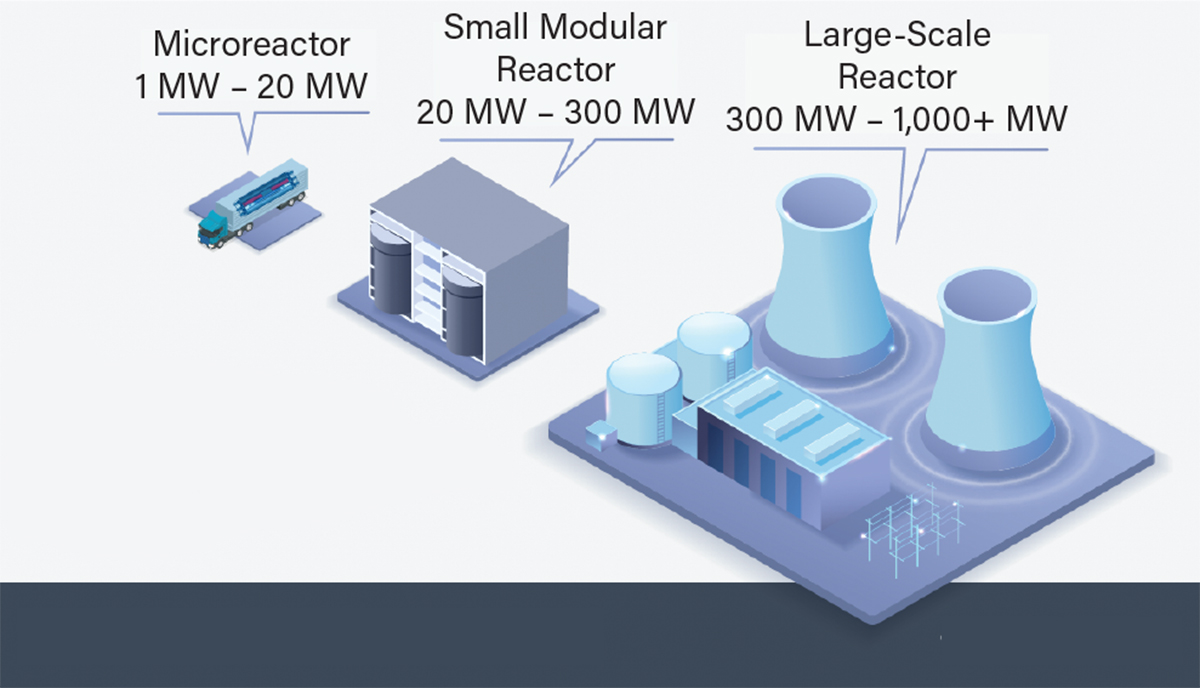Micro nuclear reactors have the potential to revolutionize energy generation, but many challenges remain before they can be realistically implemented.
While fossil fuels still dominate the energy sector, global demand for energy continues to grow, prompting massive technological advances in the alternative energy industry — including solar, hydropower, nuclear energy, and other renewable sources, as well as advanced energy storage.
One particularly fascinating area of research and development (R&D) in this industry is micro nuclear reactors. Small modular reactors (SMRs) are nuclear fission devices that generate less than 300 MW, while very small modular reactors (vSMRs) generate less than 20 MW. Examples of an SMR and vSMR are shown in Figure 1 and 2 respectively (1).

▲Figure 1. Cross-section of the System-integrated Modular Advanced Reactor (SMART), a type of small modular reactor (SMR) developed by the Korean Atomic Energy Research Institute (1). Image courtesy of Korean Atomic Energy Research Institute.

▲Figure 2. Envisioned installation of the Micro Modular Reactor (MMR) energy module, a type of very small modular reactor (vSMR) designed by the Ultra Safe Nuclear Corp. Image courtesy of the Ultra Safe Nuclear Corp.
vSMR power plants have a smaller electrical production capacity than conventional natural gas or coal-fired plants that generate thousands of megawatts of power, more than enough to power large metropolitan areas. A size and power generation comparison between conventional reactors, SMRs, and vSMRs is shown in Figure 3(2).

▲Figure 3. Comparison between a conventional, small modular reactor, and microreactor (i.e., vSMR) in terms of their sizes and generated power (2). Image courtesy of the Office of Nuclear Energy.
These vSMRs could be used in remote locations where power grids are unavailable, e.g., mining operations, oil and gas rigs, chemical plants, military installations, and isolated communities. Power can be provided to remote locations on a near-perpetual basis using a combination of these power plants and existing power infrastructure. The small footprint and modular design of vSMRs make them easily transportable. Typically, modules can be commissioned, successfully operated, and then de-commissioned once their service cycle has ended. Fuel replenishment cycles for these reactors are substantially longer (7–20 years) (3) than conventional nuclear reactors (3–6 years) (4). And, the modular reactor’s small size allows for the replacement of the reactor itself, in addition to the replacement of fuel rods, once it has reached its end-of-life cycle.
Although vSMRs have not yet been deployed for civilian applications, several will be at various stages of conceptualization, design, and development in 2022. This article focuses on the conceptual development of vSMRs, implementation challenges, and the progress made in their real-world deployment....
Would you like to access the complete CEP Article?
No problem. You just have to complete the following steps.
You have completed 0 of 2 steps.
-
Log in
You must be logged in to view this content. Log in now.
-
AIChE Membership
You must be an AIChE member to view this article. Join now.
Copyright Permissions
Would you like to reuse content from CEP Magazine? It’s easy to request permission to reuse content. Simply click here to connect instantly to licensing services, where you can choose from a list of options regarding how you would like to reuse the desired content and complete the transaction.
